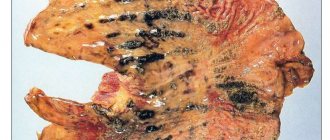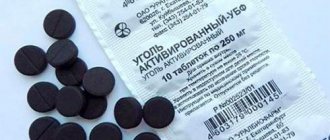If you need emergency help, contact Alco-Center
Call the hotline +7 (495) 773-03-43 and our doctors will provide emergency care for intoxication of the body with breakdown products of alcohol and narcotic substances.
from 3,200 rub.
Withdrawal from binge drinking
Emergency body detoxification procedure
from 4,000 rub.
Coding
Urgent blocking of cravings for alcoholic beverages
from 68,000 rub.
Rehabilitation
Comprehensive rehabilitation giving 100% results
How to get rid of severe toxicosis
Before figuring out how to relieve symptoms, you need to determine the severity of the condition. First aid for severe poisoning includes the following:
- Make sure the person is sitting. Lying down is dangerous - you may start vomiting, which makes it easy to choke. If the patient wants to lie down, place him on his side, but do not move too far away.
- Provide the patient with plenty of fluids. The more he drinks, the better - it will help flush out toxins.
- Give any sorbents to drink (activated carbon, Enterosgel, etc.).
- Call the drug treatment team and wait for the specialists. They may be able to provide further instructions over the phone.
While waiting for a team of doctors, there is no need to give the intoxicated person medication on your own, because he may be allergic to some active substances, and your intervention will only make things worse.
Symptoms
Alcohol poisoning is a condition in which a person develops disorders. This is due to drinking alcohol in large quantities. Light alcoholic drinks (cider, beer) rarely cause problems, but after cognac or vodka severe intoxication is possible. What symptoms will be present:
- headache;
- strong thirst;
- nausea accompanied by vomiting;
- loss of skin sensitivity;
- disorientation (impaired coordination of movements);
- decreased heart rate;
- weakening of reflexes;
- decreased concentration of attention, which is accompanied by a slow reaction to external stimuli;
- decreased breathing rate;
- arterial hypotension;
- tremor of the limbs.
The symptoms and signs of alcohol poisoning are not difficult to recognize; they cannot be confused with a hangover. The entry of a large amount of ethyl alcohol into the body causes the brain to send signals about an attempt at poisoning. At the very beginning, these are pleasant symptoms of intoxication, and then a worsening condition that requires the intervention of medical staff.
What absolutely should not be done in case of alcohol poisoning?
In case of severe alcohol poisoning, it is prohibited to: • Lay the victim on his back, because due to a very slow reaction, he simply will not have time to take the desired position when vomiting and will simply choke on its contents. • Give alcohol “to alleviate the condition,” which is only advisable in case of poisoning with methyl alcohol or ethylene glycol. • Taking a cool shower. Many, from the old memory of Soviet sobering-up stations, consider this a panacea for alcohol intoxication. In fact, the body already suffers from hypothermia, and an extreme shower will only worsen the situation, cause unwanted vascular spasm and can even lead to reflex cardiac arrest. • In no case should the patient be forced to be active, because all systems of his body are already working to the limit. • Avoid coffee for the affected person due to its effect on the activity of the cardiovascular system, which is already tense.
In addition, it is unacceptable to leave the victim alone, because he may suddenly lose consciousness, have a stuck tongue, or have a sudden cardiac arrest. In the absence of timely help, these dangerous conditions can result in death.
Help at home
Alcohol intoxication treatment at home is necessary to avoid death. The following activities are used at home:
- Pour cold water over the victim's head to keep him conscious.
- Give Aspirin, Paracetamol, Analgin (one tablet each).
- Place the patient on his side so that vomit does not block the respiratory passage.
- Give liquid to drink in small sips (pure water, saline or soda solution).
- Bring a person to his senses with light blows to the face if he loses consciousness.
- Do not allow the victim to move except when necessary to relieve himself.
- Give Enterosgel, Polysorb or another sorbent.
Usually these measures lead to the speedy elimination of the consequences of over-drinking. The body suffers from all sides - the body is saturated with toxic substances, the liver does not have time to remove toxins, the stomach is cramped, especially if the patient has repeated vomiting, and there is an accumulation of feces inside the intestines. These symptoms of alcohol poisoning will eventually pass, but if nervous processes slow down and intoxication develops, it will be difficult for the person to recover on their own.
What is ethyl alcohol and the characteristics of its toxic effects on the body?
Before discussing the problems of alcohol poisoning, it is necessary to remember what alcohol actually is (ethanol or ethyl alcohol) and what are the characteristics of its effect on the human body. So, ethanol is a colorless, transparent, flammable liquid with a specific odor, miscible with water in different proportions and highly soluble in fats. Alcohol is present in the human body in small quantities. It is formed as a natural product of metabolic processes, as well as microbial fermentation in the large intestine. This is the so-called endogenous alcohol. Exogenous alcohol coming from the outside has a moderate toxic effect when supplied in medium concentrations and strong at high concentrations. Much more toxic is the intermediate product of its metabolism - acetaldehyde, which is formed during the oxidation of ethanol in liver cells and its breakdown to the final products - carbon dioxide and water. Therefore, the general toxic effect of alcohol consists of total intoxication with alcohol itself and its intermediate breakdown products (acetaldehyde, acetate, ketone bodies). Among the features of the physiological effects of alcohol on the body, the following points can be highlighted: • Absorption of 20% of alcohol occurs in the stomach, the remaining 80% is absorbed in the small intestine. • Half of the alcohol taken on an empty stomach appears in the blood within 15 minutes. The presence of food significantly slows down the absorption process and, on average, the maximum content of ethanol in the blood is reached 1.5 hours after its intake. At the same time, strong alcohol (more than 30% ABV) and sparkling wines are absorbed much faster than low-alcohol drinks. • The development of intoxication depends not only on the amount of alcohol consumed, but also on the length of this process over time. For example, 0.5 liters of vodka, taken over a short period of time, i.e. almost instantly will most likely lead to serious alcohol poisoning. The same half a liter consumed throughout the day will simply prolong alcohol intoxication. • Good solubility in fats and the ability to easily penetrate cell membranes mean that alcohol can be absorbed through the skin, especially children's skin. There are known cases of deaths in children when using alcohol-containing solutions for wrapping and compresses for colds. • Alcohol easily penetrates the placenta and has an even more detrimental effect on the fetus than on its expectant mother. • The lethal dose of ethanol is 1 liter of vodka or 300 ml of 96% ethyl alcohol when taken simultaneously. • Ethanol is excreted unchanged through the kidneys (2-4%), lungs (3-7%). The remaining 90-95% are transformed in the liver, which bears the main burden of neutralizing alcohol and converting it into final non-toxic substances - CO2 and H2O. The specific impact of alcohol on various human systems and organs is best viewed through the prism of the severity and type of alcohol poisoning.
Gastric lavage
If it turns out that a person has signs of alcohol poisoning, gastric lavage will not be superfluous. This will help get rid of ethanol breakdown products and restore the functioning of nervous activity (alcohol will not have time to be absorbed into the blood). For this purpose, it is recommended to use activated carbon. Its action is aimed at binding toxic substances, and they quickly and harmlessly leave the body. The use of activated carbon is appropriate even if a person has mild to moderate degrees of intoxication.
After washing, weakness develops, but the person temporarily forgets about the signs of over-drinking. This method is effective even if the patient has a severe stage. After acute symptoms are relieved, all functions will gradually be restored. Plain drinking water is also used as rinsing. Give two glasses to drink and immediately induce vomiting by pressing on the root of the tongue. The purpose of rinsing is to remove alcohol, but if a person is unconscious, then it is strictly forbidden to pour water into him.
Types of intoxication
approximately the same when intoxicated ; they develop similar states:
- relaxation, muscle relaxation;
- inhibition of reactions;
- euphoria;
- cheerfulness, energy, fun;
- drowsiness that appears a little later;
- talkativeness;
- facial redness;
- good nature.
But a person’s behavior while intoxicated can change dramatically in the following cases:
- previous traumatic brain injuries;
- psychopathy, which often appears with addictions;
- alcoholism.
Behaviors of such patients include:
- Dysphoria . In this case, when intoxicated, a person becomes irritable, aggressive and gloomy. He wants to throw out accumulated anger and aggression, provokes fights and scandals. Note that the presented behavior occurs during TBI, as well as as a result of alcoholism. Already at the first stage, alcoholic aggression arises; at the second stage it is only aggravated by structural changes in the brain, psychopathy and other progressive mental pathologies.
- Paranoid . When intoxicated, such people become very suspicious. They interpret the behavior and words of others in a distorted way. They often feel that they are being mocked and bullied behind their back. As a result, cheap alcoholic energy is directed toward sorting out relationships and provoking conflict situations.
- Foolishness . This type of behavior when intoxicated is more typical of teenagers. The person begins to make strange sounds, behave violently, and grimace. As a rule, this behavior is characteristic of patients who develop a latent form of schizophrenia.
- Hystericality . The presented type of intoxication occurs during alcoholism. A person begins to fight for public attention, he tries in every way to “pull the blanket over himself.” Often such people also commit simulated suicide in public.
Alcoholism seriously changes a person: his mental state changes, certain pathologies appear, withdrawal symptoms, personality changes, and constant psychopathy. A person loses his internal boundaries and breaks certain barriers. Theft, deception, theft, hooliganism, betrayal and violence become the norm for such a person. He loses his conscience, sense of responsibility and duty. Therefore, alcoholics are recommended for rehabilitation with mandatory psychotherapy - they need to work on their personality from scratch, forming a new value system. This is a very long and painstaking work.
Medicines
As soon as the alcohol has been removed from the stomach, the person is given one of the following drugs:
- Anti-E;
- Colma;
- Zorex;
- Metadoxyl;
- Hepatofalk;
- AlkoStop;
- Yantavit;
- Glycine;
- Sofinor;
- Alka-Seltzer.
The use of these medications is appropriate for poisoning and treatment of alcohol intoxication. They should be taken in the dose indicated in the instruction leaflet. Many of them are freely available and allow you to instantly eliminate alcohol poisoning at home.
What is good for a Russian is death for an Asian
Each of us has an individual tolerance to ethyl alcohol. This is due to the presence of a liver enzyme that utilizes ethanol - alcohol dehydrogenase. If such an enzyme is produced in small quantities or not produced at all, alcohol intoxication occurs almost instantly. For example, in half of the indigenous population of Japan and China, the alcohol-neutralizing enzyme is simply inactive.
Poisoning and intoxication occurs more quickly in people suffering from gastritis and peptic ulcers, especially if you drink on an empty stomach.
Treatment of intoxication in the clinic
A person with euphoria does not necessarily experience intoxication after drinking alcohol. Violation occurs only after drinking a lot of drink. Alcohol intoxication symptoms and treatment are not always applicable at home. Then there is an option to go to the clinic.
It is difficult to restore human health, so the attention and consultation of doctors in the case of this disease will not be superfluous. You can only do something yourself at first. If the discomfort does not subside within an hour, you need to call a first aid ambulance. Medical workers are ready to see the patient around the clock and begin treating alcohol poisoning.
Express output and encoding
13,500 months
Home visit
Order service
Intravenous injections
There are many methods for eliminating the unpleasant feeling caused by drinking alcoholic beverages. In the clinic, blood purification is carried out by placing droppers:
- 5% and 10% glucose solution;
- 5% ascorbic acid solution;
- Reomacrodex, Rondex, Reopoliglyukin, Disol, Hemodez - one bottle each;
- vitamin B6 and B1 in the form of 5% solutions of 3-5 ml;
- 10% calcium chloride solution.
Saline solution is a universal drug that restores water-salt balance. It will help thin the blood and reduce the concentration of toxic substances. It is not always possible to cope with tablets, so the medication is more beneficial when administered intravenously. Plus, saline solution is harmless for people who suffer from diabetes and cannot respond adequately to a glucose drip.
It is better to do the digging in the clinic rather than at home. There is no doctor who can prescribe the correct dosage and no nurse who can properly install an IV. Eliminating the symptoms of the disease under control is safer, produces results faster, and the body’s systems are fully restored. Complete detoxification is carried out in two to three days.
Maintenance therapy
Treatment of alcohol poisoning at home can be carried out after emergency care has been provided by doctors, but there is also the option of continuing therapy in a hospital. The convalescent is prescribed:
- Diuretics for quick and natural cleansing of the body.
- Vitamin complexes to improve organ function.
- Analgesics for pain relief.
- Vasodilators to eliminate hypertension.
- Sedatives to improve mental health.
- Hepatoprotectors to normalize liver function.
- Glycosides for the heart muscle.
- Probiotics to normalize intestinal microflora.
- Laxatives for stagnation of feces or medications to stop diarrhea.
All patients are prescribed a drinking regimen of 1.5-2 liters of fluid per day. Weak tea, water, electrolytes, and diluted citrus juice are suitable. Avoid coffee and carbonated drinks completely.
Recovery
After detoxification, time is given for rehabilitation. It is carried out using folk remedies. They drink grapefruit juice, a decoction of St. John's wort, tansy, lemon balm tea, Borjomi. A strict diet is prescribed:
- The food is not fried, but steamed or stewed, baked in the oven.
- Non-fatty meats.
- The predominance of vegetables and fruits in the daily diet.
- Refusal of fried and spicy foods, marinades and pickles.
- Exclusion from the diet of smoked meats and seasonings.
- To prepare first courses, use lean broths.
- Refusal of fast food.
With the help of traditional medicine, the recovery course is easy and makes it possible to heal in the shortest possible time. The recovery process takes a week, and improvement in well-being occurs on the second or third day.
Alcohol intoxication cannot be ignored. Without intervention it will get worse, and self-healing will take a long period of time. Therefore, immediately contact the clinic to receive full treatment from professionals.
Author of the article: Yakovlev Evgeniy Anatolyevich
Narcologist, Candidate of Medical Sciences.











